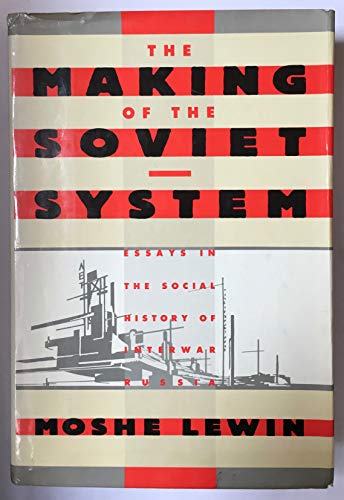In this now-classic book, Moshe Lewin traces the transformation of Russian society and the Russian political system in the period between the two world wars, a transformation that was to lead to Stalinism in the 1930s. Lewin focuses on the changes stemming from war, revolution, civil war, and industrialization, and he discusses such topics as rural society and religion in the twentieth century; the background of Soviet collectivization; Soviet prewar policies of agricultural procurement; the kolkhoz and the muzhik; Leninism and Bolshevism; industrial relations during the five-year plans of 1928–1941; and the social background of Stalinism. Through this comprehensive approach to understanding the origins and problems of Stalinism, Lewin makes a significant contribution to the study of Russia’s social history before the revolution as well as in the Soviet period.
In this classic book, Moshe Lewin traces the transformation of Russian society and government that was to lead, in the 1930s, to Stalinism. His emphasis is on the changes stemming from war, revolution, civil war and industrialization, and he analyses such topics as rural society and religion in the 20th century; the background of Soviet collectivization; Soviet prewar policies of agricultural procurement; the kolkhoz and the muzhik; Leninism and bolshevism; industrial relations during the five-year plans of 1928-1941; and the social background to Stalinism. Lewin examines the political, ideological and cultural developments that accompanied or, in some cases, resulted from these changes and, through a comprehensive approach to understanding the problem and origins of Stalinism, makes a significant contribution to the study of Russia's social history before the Revolution as well as in the Soviet period.
